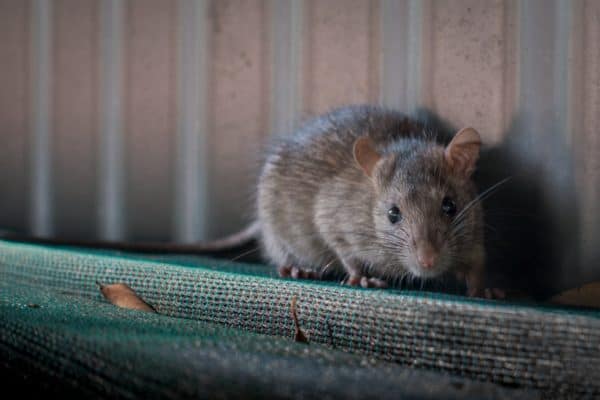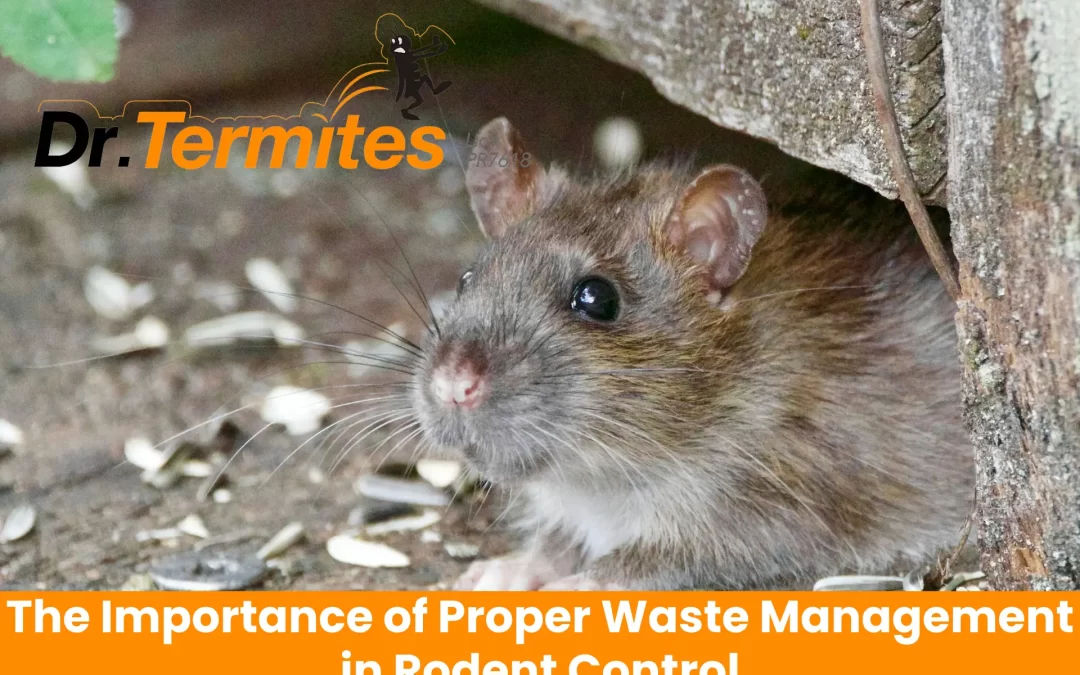Rodents, a common problem in many homes and businesses, can have serious implications for public health and property. Managing them effectively is crucial to ensure a safe and healthy environment. While there are a variety of methods available for rodent control, one strategy that often goes overlooked is proper waste management. Yet, it is an essential component that can significantly reduce the risk of rodent infestation.
This article aims to shed light on the importance of waste management in controlling rodent populations and offers practical solutions to help you maintain a rodent-free environment.

The Connection Between Waste Management and Rodent Control
Understanding the link between waste management and rodent control is key to maintaining a healthy environment. It requires a shift in perspective to appreciate how these two seemingly unrelated aspects are intrinsically tied together.
The Attraction of Waste for Rodents
Firstly, it’s important to understand that rodents like rats and mice are drawn towards food sources. Waste, particularly improperly managed food waste, serves as an enticing buffet for these creatures. When waste isn’t disposed of correctly or regularly, it becomes a consistent supply of nourishment for rodents, making your property a potential hotspot for infestation.
How Poor Waste Management Facilitates Rodent Infestation
Ineffective waste disposal systems or irregular waste collection schedules can lead to buildup of waste, creating perfect breeding grounds for rodents. These conditions not only attract rodents but provide them with shelter, allowing populations to grow rapidly.
The Role of Effective Waste Management in Rodent Control
Effective waste management is an essential component in the overall strategy for controlling rodent populations. This relationship is not immediately apparent, but a closer look reveals how interconnected these two elements are.
Waste Disposal Systems
Effective waste disposal systems play a crucial role in rodent control. Regularly cleaned and tightly sealed bins prevent rodents from accessing waste. Additionally, placing bins at a distance from buildings can reduce the chances of rodents entering your premises.
Regular Waste Collection
By ensuring regular waste collection, adhering to correct disposal protocols, and maintaining cleanliness, one can deter rodents from inhabiting a particular location. Thus, efficient waste management is not only a crucial part of a comprehensive rodent control strategy but also a significant contributor to a cleaner, healthier environment. It is evident that managing waste effectively is a vital step towards mitigating the risk of rodent infestations.
Guidelines for Implementing Effective Waste Management in Rodent Control
Understanding and implementing proper waste management is pivotal in controlling rodent populations. A well-structured approach to waste management can significantly reduce the risk of rodent infestations, thereby maintaining a cleaner and healthier environment.
Recognizing the Importance of Waste Management
The first step in effective rodent control is recognizing the significant role that waste management plays. Rodents, such as rats and mice, are attracted to areas where food and shelter are readily available. Unfortunately, poorly managed waste fulfills both these needs, providing an attractive habitat for rodents. Therefore, it’s crucial to ensure proper waste disposal to minimize the chances of a rodent infestation.
Regular and Timely Waste Disposal
One of the most effective strategies in waste management is the regular and timely disposal of waste. When waste is allowed to accumulate, it not only attracts rodents but also provides them with a conducive environment for breeding. Thus, ensuring a consistent and regular schedule for waste collection and disposal can greatly deter rodents from inhabiting your property.
Correct Disposal Methods and Cleanliness
In addition to regular waste disposal, it’s also important to follow correct disposal methods. This includes separating recyclables, composting organic waste when possible, and properly sealing waste bins to prevent access by rodents. Maintaining cleanliness around waste disposal areas can further discourage rodents from settling in these areas.
Coordinate with Local Waste Collection Agencies
Coordinate with local waste collection agencies to maintain a regular and efficient waste collection schedule. This helps prevent the buildup of waste that could facilitate rodent infestation.
Implementing these guidelines for effective waste management can play a crucial role in controlling rodent populations, contributing to a safer and healthier living environment.
Strategies for Effective Rodent Control Through Waste Management
Effective waste management is a critical step in successful rodent control. By removing the food sources and habitats that waste offers, you can significantly minimize the risk of a rodent infestation. Adhering to strict waste disposal protocols, maintaining waste disposal systems regularly, and coordinating with local waste collection agencies are all actionable measures that can be taken towards this goal.
In this journey, you don’t have to walk alone. Our company, Dr. Termites, stands ready to assist you with comprehensive rodent control solutions. We offer expert advice and services tailored to your specific needs. Get in touch with us today to create a safer, rodent-free environment for your home or business. Remember, when it comes to rodent control, proper waste management is a step you can’t afford to overlook.































